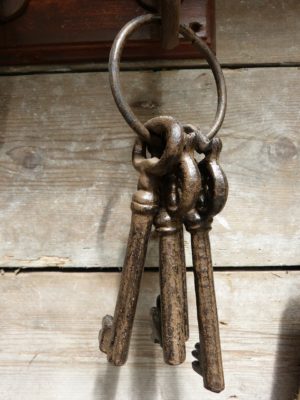Meeting for breakfast with a friend and former co-worker recently, the conversation turned to a certain leader with whom we were both familiar. This leader had built a family of successful companies. It was easy to attribute the success of these companies to the culture and, in turn, to trace the culture to the character of this leader. The companies were all successful because the people within them worked hard to make them successful and they worked hard because they would follow this leader wherever he asked them to go. We observed that the people in all of his companies were eager to follow him because of his great leadership and that this leadership was not something that he had needed to learn. Almost in unison we both said, “The way that he leads is just the way he is.”
With so many of the great leaders that I know, their leadership feels easy to them because the way that they lead is just a natural result of who they are, or the character within them. Their leadership is easy for their followers to accept because it is clearly authentic, the way that they behave is who they really are.
What are some of the characteristics of these great leaders? Here are a few of the most important traits of some of the great leaders that I know:

They are authentic – Great leaders don’t need to learn a bunch of leadership skills. When they come to work in the morning, they don’t need to put on their leadership hat. Great leaders lead from who they are. They have characters traits that lend themselves to building relationships and demonstrating that they are genuine in caring about the about the people around them. On the other hand, authentic leaders are easy to follow because their team members know that they are genuine. Team members can trust these leaders because they know that what they see on the outside is who the leader is on the inside.
They are humble – Great leaders naturally stand out from the crowd but they don’t regard themselves as above the people around them. They are quick to give credit and show appreciation for all that is done by others. They are willing to roll up their sleeves and do their part in any task. Team members therefore feel valued as equals.
They respect and value others. – Closely related to humility, great leaders demonstrate their respect for each person. When interacting with those around them, they are interested in the whole person, both in the part that comes to work and the part that lives outside the workplace. Great leaders understand and accept the strengths and weaknesses of those around them and know what is important to them. Great leaders genuinely care about the person within each team member, so they have an interest in their family, their health, their satisfaction, and their long-term career development.
They demonstrate high emotional intelligence – Great leaders are strong in all areas of emotional intelligence – understanding and managing their own emotions, understanding the emotions of others, and building or managing relationships. This may be a natural outflow of the value that they place on others, but great leaders have a way of being aware and in control of their own emotions and are adept at finding ways to relate positively with those around them.
These four traits seem to be foundational for great leaders. Other important traits are natural extensions of these four, qualities such as honesty, integrity, trustworthiness, openness, conscientiousness, and so on. And, of course, great leaders of organizations also demonstrate high intelligence, strong common sense and wisdom, and decisiveness.
Great leaders often make leadership look easy and natural because it simply flows from who they are. If you do not yet have these same character traits, they can be developed with some deep character work.
What other traits do you see in great leaders? Where do you stand in terms of these traits?

Add your comment